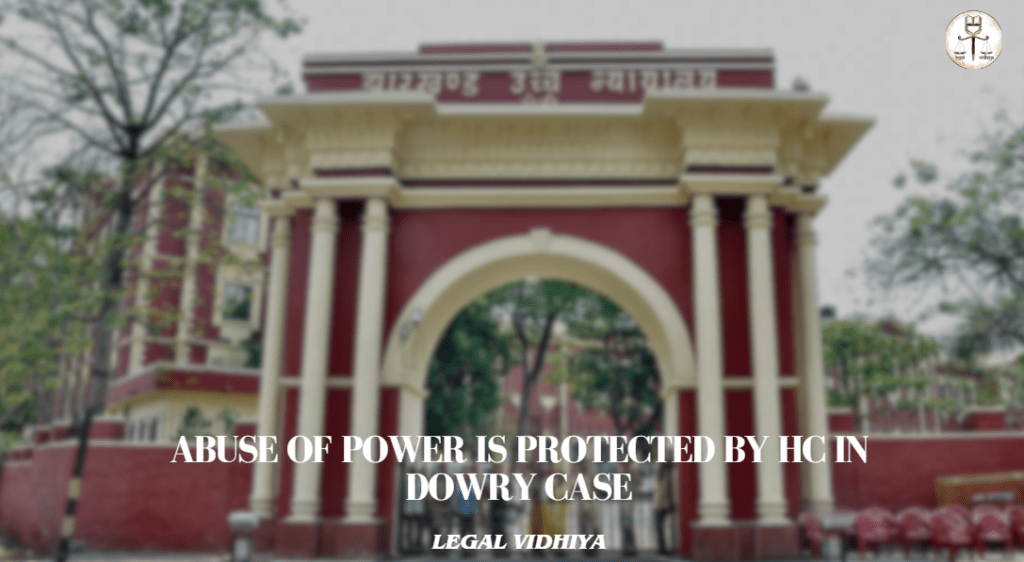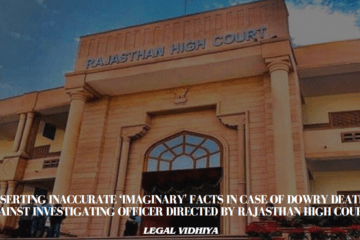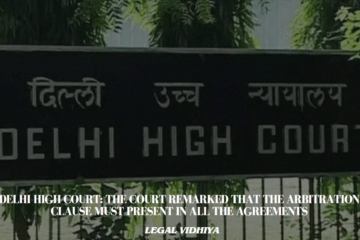
On January 18, 2024, the Jharkhand High Court in Ranchi, composed of Hon. Mr. Ratnaker Bhengra and Hon. Mr. Ambuj Nath, delivered a major legal verdict in the case of Cr. Appeal (DB) No. 774 of 2019. Within the first year of the couple’s marriage, Suresh Prasad was convicted of killing his newlywedded wife Lakhiya Devi. Suresh appealed against this decision by using Section 304-B of the Indian Penal Code.
The core object of the prosecution’s argument was that Lakhiya Devi’s sad death occurred by the practice of torture connected to dowries. Dwarika Mahto, the witness, described the story of the victim what are all incidents happened and what victim went through during marriage of the appellants and his family, explaining the widespread problem of assault associated with dowry deaths in the society. The appellant was first convicted liable under Section 304-B IPC by the Trial Court, which prompted the High Court to hear an appeal. A comprehensive range of information, like witness statements, postmortem analysis report which showed death due to breathing difficulties and the Investigations Officer’s in-depth conclusions, were systematically delivered by the state’s side throughout the trial.
The implementation of Section 113-B of the Indian Evidence Act, which imposes an assumption of dowry deaths if mistreatment or intimidation seeking dowry tis proved immediately after the wife’s death. This became a crucial to the court’s interpretation. According to the Indian Evidence Act under Section 106 it is an obligation of the accused to disprove the assumption.
The High Court affirmed the Trial Court’s findings regardless of the appellant’s defence against broader denials and wrongful interference after a thorough investigation of all relevant facts and precedents in law. The state’s case convincingly established the accuser’s innocence per Section 304-B IPC, which the court found, and noted that the appellant is unable to satisfy his obligation of proof of guilt.
The increasing incidence of crimes in India involving dowries and the legal protections that are created to deal with these horrible actions are brutally revealed by this decision. The High Court has set the standard that will guide lawful procedures in such situations by providing a comprehensive legal evaluation that illustrates the significance of maintaining fair treatment in situations involving dowry abuse and gender-based harm.
In this case High Court reflects the judiciary’s dedication to pursuing criminals connected to dowries and holding those who are responsible and accountable for the deeds. In addition to providing justice in such a particular case, the HC makes a clear statement about how urgent it is to eradicate the evil of violence associated with dowries against society.
The High Court’s upholding of the verdict against the appellant in this dowry killing case is a significant turning point in the realm of law and proves the court’s commitment to defending the rights of those who are disadvantaged within society.
NAME: SHRIDEVI C. KOTKAR, B.A, LLB COLLEGE: AZIM PREMJI UNIVERSITY, BANGALORE, INTERN UNDER LEGAL VIDHIYA.
Disclaimer: The materials provided herein are intended solely for informational purposes. Accessing or using the site or the materials does not establish an attorney-client relationship. The information presented on this site is not to be construed as legal or professional advice, and it should not be relied upon for such purposes or used as a substitute for advice from a licensed attorney in your state. Additionally, the viewpoint presented by the author is of a personal nature.




0 Comments